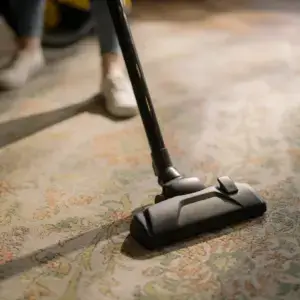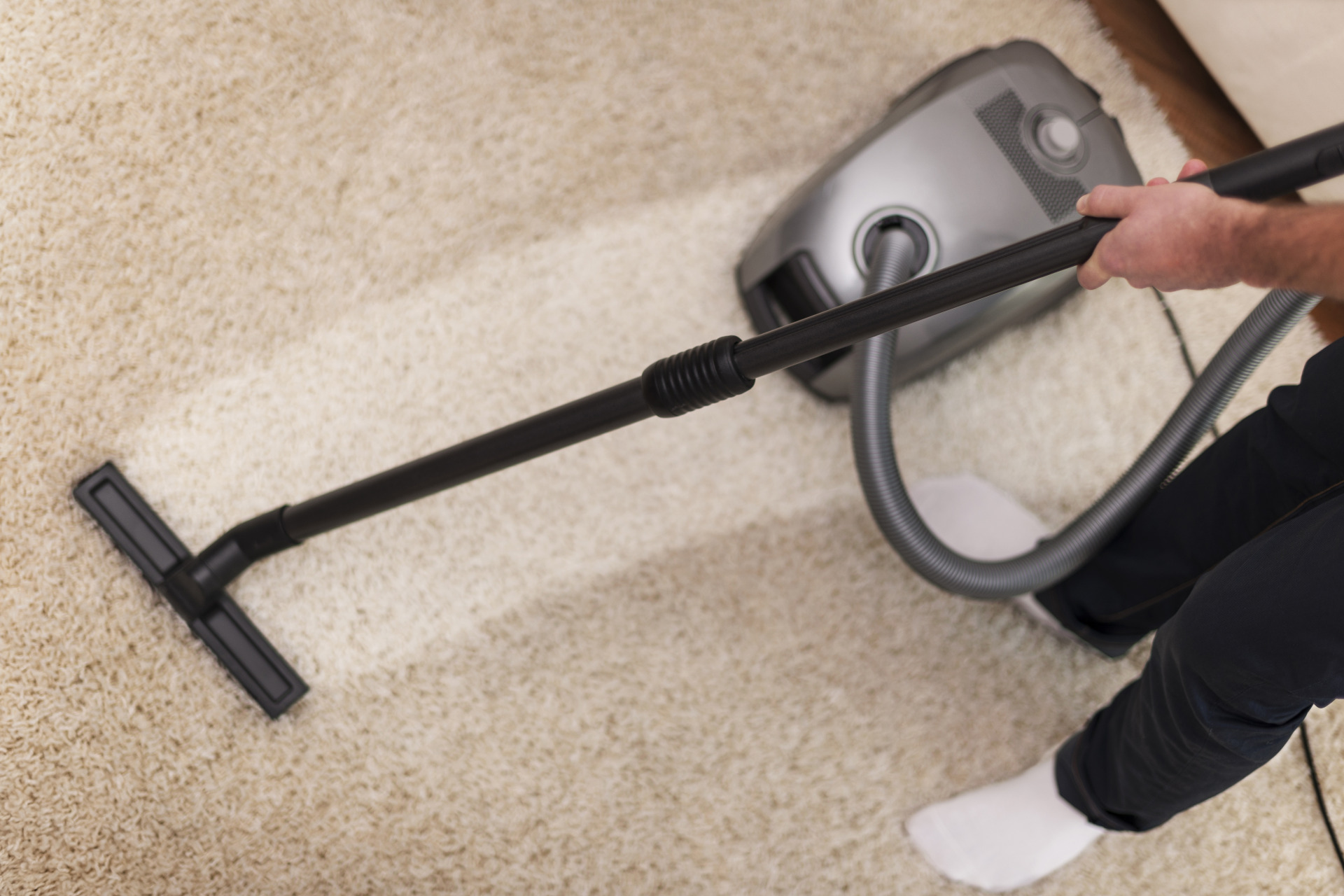Introduction
In the world of outdoor cleaning, hoses play a vital role in ensuring efficient water distribution. However, it’s important to recognize that the process of using and maintaining hoses can have environmental implications.
From water wastage to chemical runoff, there are various factors to consider when it comes to hose cleaning for environmental safety and pollution prevention. In this blog, we will explore the importance of responsible hose cleaning practices and provide tips on how to minimize environmental impact.
By adopting eco-friendly approaches, we can contribute to a cleaner and more sustainable future.
Water Conservation: Efficient Use and Management

Water conservation is a key aspect of hose cleaning for environmental safety. It’s crucial to use water efficiently and avoid unnecessary wastage. Start by using a trigger nozzle or a shut-off valve to control the flow of water when cleaning.
This allows you to minimize water consumption by only using it when needed. Additionally, consider capturing and reusing water whenever possible. For instance, collect rainwater in barrels or use graywater from household activities for outdoor cleaning purposes.
By maximizing water efficiency and reducing waste, you can make a significant contribution to conserving this precious resource.
Chemical Usage: Eco-Friendly Alternatives

Another aspect of environmentally responsible hose cleaning is the choice of cleaning agents. Traditional cleaning chemicals can contain harmful ingredients that can be detrimental to the environment when they enter waterways through runoff.
To mitigate this, consider switching to eco-friendly cleaning solutions. Look for biodegradable and non-toxic products that are safe for the environment. Alternatively, you can explore natural cleaning alternatives such as vinegar, baking soda, or citrus-based cleaners.
These options are effective, readily available, and have minimal environmental impact. By choosing eco-friendly cleaning agents, you can prevent chemical pollution and promote a healthier ecosystem.
Preventing Contamination: Proper Storage and Maintenance

Proper storage and maintenance of hoses are essential for preventing contamination and pollution. After each use, make sure to drain the hose completely to avoid stagnant water or the growth of bacteria. Store the hose in a cool and dry place to prevent degradation and prolong its lifespan.
Additionally, inspect the hose regularly for any signs of damage or leaks. A leaking hose can not only result in water wastage but also contribute to soil erosion and contamination.
By addressing any issues promptly and maintaining the hose in good condition, you can ensure its optimal performance while minimizing the risk of pollution.
Responsible Disposal: Recycling and Reuse
When the time comes to replace your hose, it’s important to dispose of it responsibly. Hoses are typically made of materials such as rubber, PVC, or polyurethane, which can take a long time to decompose in landfills. Instead of throwing it away, consider recycling options available in your area.
Some recycling facilities accept hoses and repurpose them for various applications. If recycling is not feasible, explore creative ways to reuse the hose. For example, you can repurpose it as a protective covering for delicate plants or as a conduit for electrical wires.
By finding alternative uses for old hoses, you can reduce waste and minimize their impact on the environment.
Education and Awareness: Spreading the Message
Education and awareness play a crucial role in promoting responsible hose cleaning practices for environmental safety.
Share information about the importance of water conservation, the use of eco-friendly cleaning agents, and the proper disposal of hoses with family, friends, and neighbors. Encourage them to adopt sustainable practices in their outdoor cleaning routines.
Additionally, consider organizing community workshops or events to raise awareness about environmentally friendly hose cleaning techniques. By collectively spreading the message and promoting responsible habits, we can create a positive impact on our environment and inspire others to do the same.
Collaborating with Local Authorities: Community Initiatives

Collaborating with local authorities is essential for implementing effective environmental strategies related to hose cleaning. Many municipalities and water conservation agencies offer programs and resources to promote responsible water usage.
Get involved in community initiatives that focus on water conservation and pollution prevention. These initiatives may include educational campaigns, water-saving incentives, or community clean-up events.
By joining forces with local authorities, you can amplify your impact and contribute to larger-scale efforts in protecting the environment.
Promoting Green Landscaping Practices: Integrated Approach
Hose cleaning is often associated with outdoor landscaping and gardening activities. Taking a holistic approach to outdoor maintenance can significantly reduce environmental harm.
Embrace green landscaping practices such as using native plants, installing efficient irrigation systems, and applying organic fertilizers. By incorporating these practices, you can minimize the need for excessive watering, reduce chemical usage, and support biodiversity.
Additionally, consider incorporating rain gardens or bio-retention areas into your landscape design. These features help capture and filter rainwater, preventing runoff and promoting groundwater recharge.
Monitoring and Adjusting Cleaning Practices: Continuous Improvement
Regularly monitor your hose cleaning practices and assess their environmental impact. Keep track of water consumption, chemical usage, and waste generation. Identify areas for improvement and make necessary adjustments.
For instance, if you notice excessive water runoff during hose cleaning, consider using absorbent mats or redirecting the water to landscaped areas. Evaluate the effectiveness of eco-friendly cleaning agents and explore new options that are continuously emerging in the market.
By being proactive in monitoring and adjusting your cleaning practices, you can continuously improve your environmental performance.
Engaging in Rainwater Harvesting: Sustainable Water Source
Rainwater harvesting is an effective and sustainable method to reduce reliance on traditional water sources for hose cleaning.
Consider installing rain barrels or cisterns to collect rainwater from rooftops. This harvested water can be used for various outdoor cleaning tasks, including hose cleaning. By utilizing rainwater, you not only conserve water but also reduce the strain on municipal water supplies.
Additionally, rainwater is naturally soft and free from the chemicals typically found in tap water, making it an ideal choice for cleaning delicate surfaces.
Leading by Example: Inspiring Others

One of the most powerful ways to promote responsible hose cleaning practices is by leading by example. Implement eco-friendly strategies in your own cleaning routine and showcase the positive impact they have on the environment.
Share your experiences, tips, and successes with others through social media, blogs, or community forums. Encourage your friends, family, and neighbors to join you in adopting sustainable cleaning practices.
By inspiring others through your actions and demonstrating the benefits of eco-friendly hose cleaning, you can create a domino effect, inspiring a larger movement towards environmental responsibility.
Conclusion
Taking care of our hoses while prioritizing environmental safety and pollution prevention is crucial for a sustainable future.
By implementing water conservation measures, choosing eco-friendly cleaning agents, practicing proper storage and maintenance, responsibly disposing of hoses, collaborating with local authorities, promoting green landscaping practices, monitoring and adjusting cleaning practices, engaging in rainwater harvesting, and leading by example, we can make a significant positive impact.
Let’s all do our part in protecting the environment and ensuring cleaner, healthier surroundings for ourselves and future generations.







